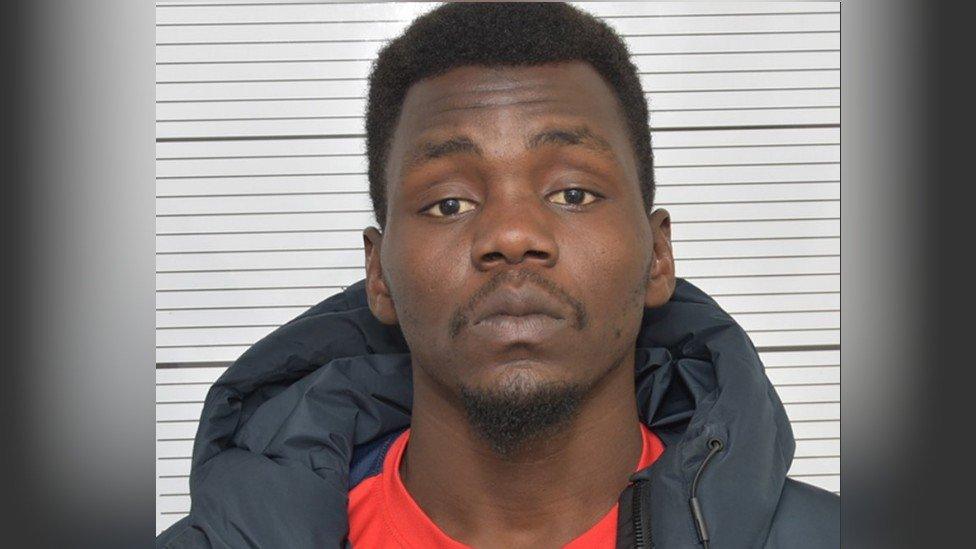Mohammed Abbkr sentenced for setting worshippers alight
- Published
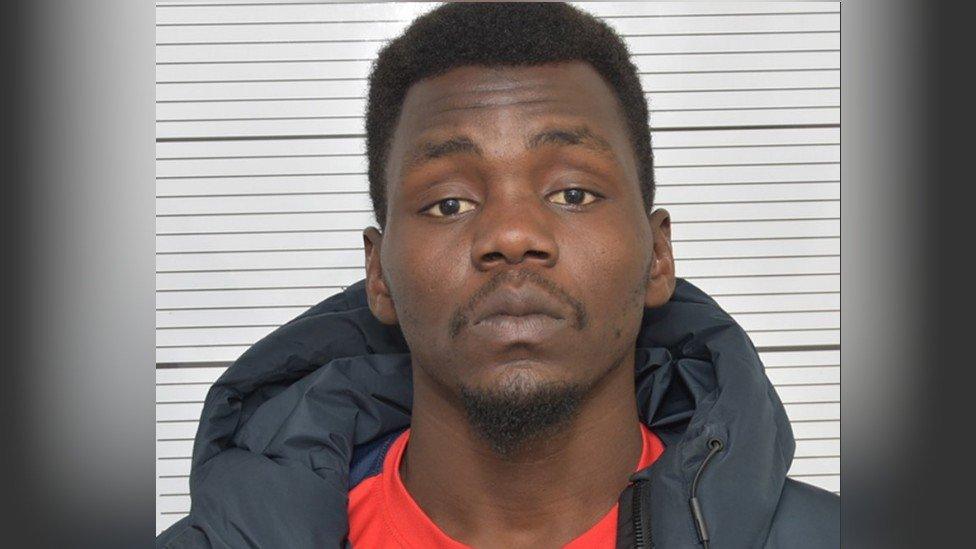
Mohammed Abbkr has been sentenced to a hospital order
A man who set two worshippers on fire as they left mosques has been sentenced to an indefinite hospital order.
Mohammed Abbkr, who has schizophrenia, sprayed petrol before setting alight Hashi Odowa, 82, and Mohammed Rayaz, 72, in London and Birmingham.
Abbkr, of Gillott Road, Edgbaston, was found guilty of attempted murder on 6 November 2023.
At his sentencing, the judge said Abbkr believed people possessed by evil spirits controlled him.
The 29-year-old's sentencing had been delayed after a Birmingham Crown Court judge ordered psychiatric reports.
As he handed down sentence Judge Melbourne Inman KC, the Recorder of Birmingham, said Abbkr would be detained in hospital for medical treatment indefinitely until any consent for his release is given by the relevant secretary of state.
'You will know me'
"The nature of each attack was identical. You threw petrol over your victims and then set them alight - the attacks were horrific," the judge told him.
Abbkr had been convicted by majority verdict over the attacks in Ealing, London and Edgbaston, Birmingham, in February and March last year, both of which were captured on CCTV.
During his trial, the jury heard Abbkr told Mr Odowa "I swear in the name of Allah, in the name of God, you will know me."
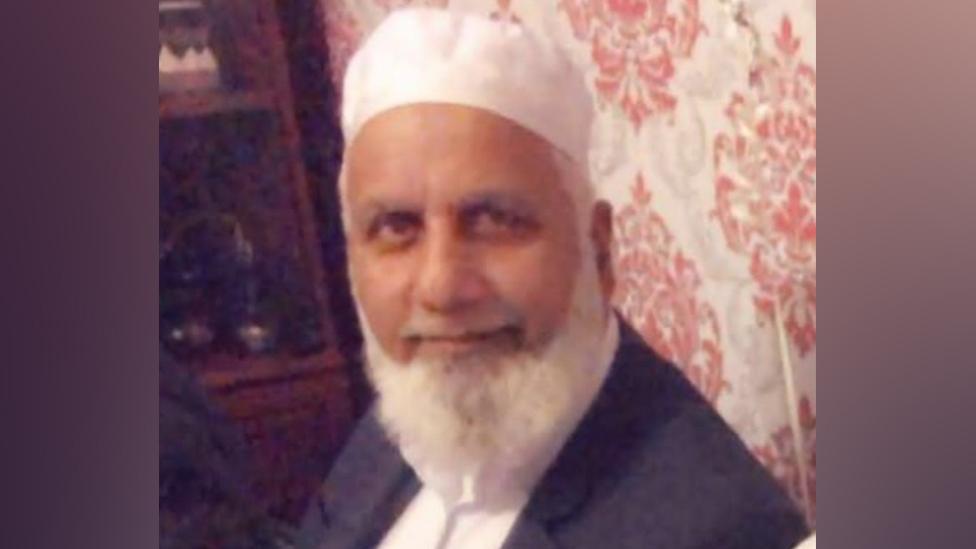
Mohammed Rayaz was seriously injured in Birmingham and required a skin graft after he was attacked
Both of the defendant's victims needed hospital treatment, with Mr Odowa having to have part of his ear reconstructed and Mr Rayaz underwent skin graft surgery after suffering life-changing injuries.
Abbkr used a lighter to ignite petrol he had in a water bottle and sprayed it at Mr Odowa's head. His victim escaped serious injury as he was able to remove his burning jacket and vest.
Mr Rayaz, however, became engulfed in a ball of flame when he was attacked, the court previously heard.
Both victims' families gave impact statements describing the lasting physical and emotional scars the men had been left with.
Mohammed Ayaz, the eldest son of Mr Rayaz, said seeing his father "in the burned state he was in was just an awful and unbearable thing to see".
He added: "My elderly mother is still traumatised and thinks that the attacker will be released early to come back to finish the job."
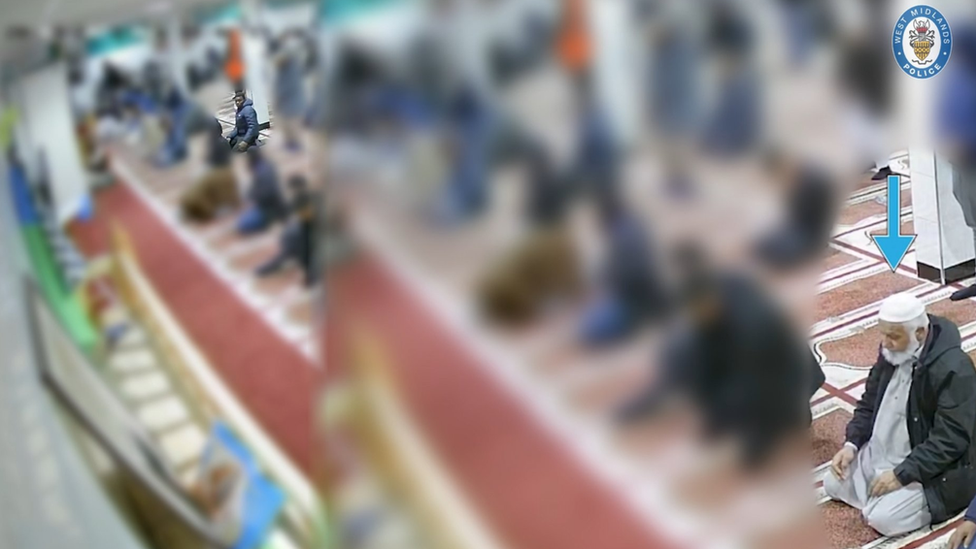
Abbkr was seen inside the Dudley Road Mosque, where Mr Rayaz was also captured on camera attending evening prayers
Counter terrorism police, who were initially drafted into the investigation, later found there was no evidence Abbkr was motivated by a particular ideology.
The attacks were not treated as terrorism-related and jurors heard one psychiatrist agreed Abbkr, who came to the UK from Sudan in 2017, has paranoid schizophrenia.
'Controlled through magic'
The defendant, who was granted leave to remain in 2019, claimed those he attacked were not human and could not be injured by fire.
Abbkr was also said to have believed that those he had set ablaze were among several people "controlling him through magic".
At his sentencing, the court heard from a consultant forensic psychiatrist who said it was, in his view, "very clear indeed" that Abbkr had schizophrenia.
Dr Ross Mirvis, who also assessed Nottingham killer Valdo Calocane, explained Abbkr had a central belief an old man called Muhammed Ali had performed magic on him and was able to control his mind.
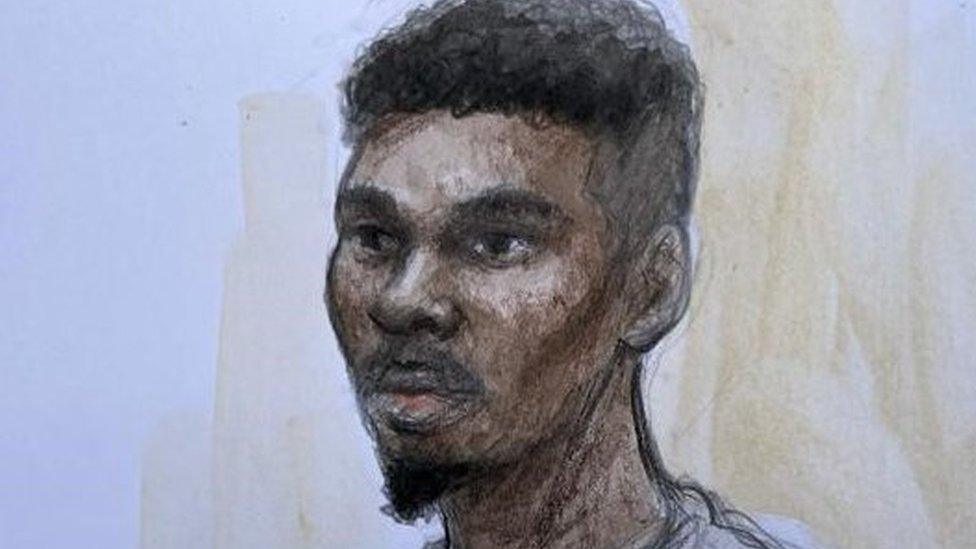
Abbkr was found guilty of attempted murder last year
He recommended Abbkr, who had no prior history of violent episodes and no criminal record, be restricted to a secure unit in a hospital, where he could undergo prolonged treatment.
"If he wasn't suffering with mental disorder I don't think he would have committed the offence," Dr Mirvis told the court.
While the jury was not satisfied Abbkr met the legal definition of insanity, Judge Inman said it was clear he was suffering very serious mental illness and was psychotic at the time of the attacks.
'Chosen at random'
"The two victims in this case were in any rational view chosen at random," the judge continued.
"You however genuinely believed each of them was one of those trying to take control of you."
Abbkr was told it was clear beyond doubt he represented a great danger to members of the public and it was highly likely he would require lifelong treatment for his illness.
If he was sent to prison, Judge Inman explained there was possibility of him relapsing and causing significant risk to others.
"The protection of the public is at the forefront of my considerations," he said.

Follow BBC West Midlands on Facebook, external, X, external and Instagram, external. Send your story ideas to: newsonline.westmidlands@bbc.co.uk, external
Related topics
- Published17 April 2024
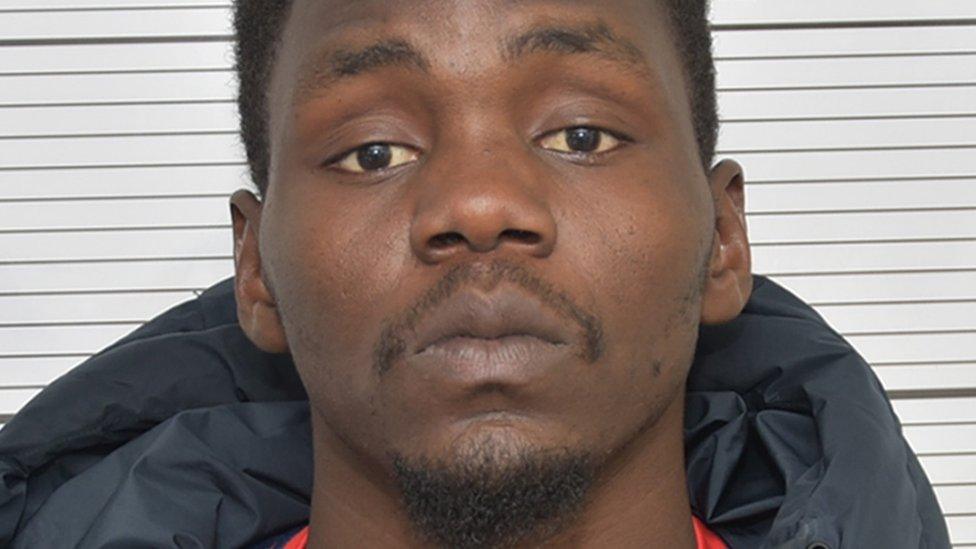
- Published6 November 2023
